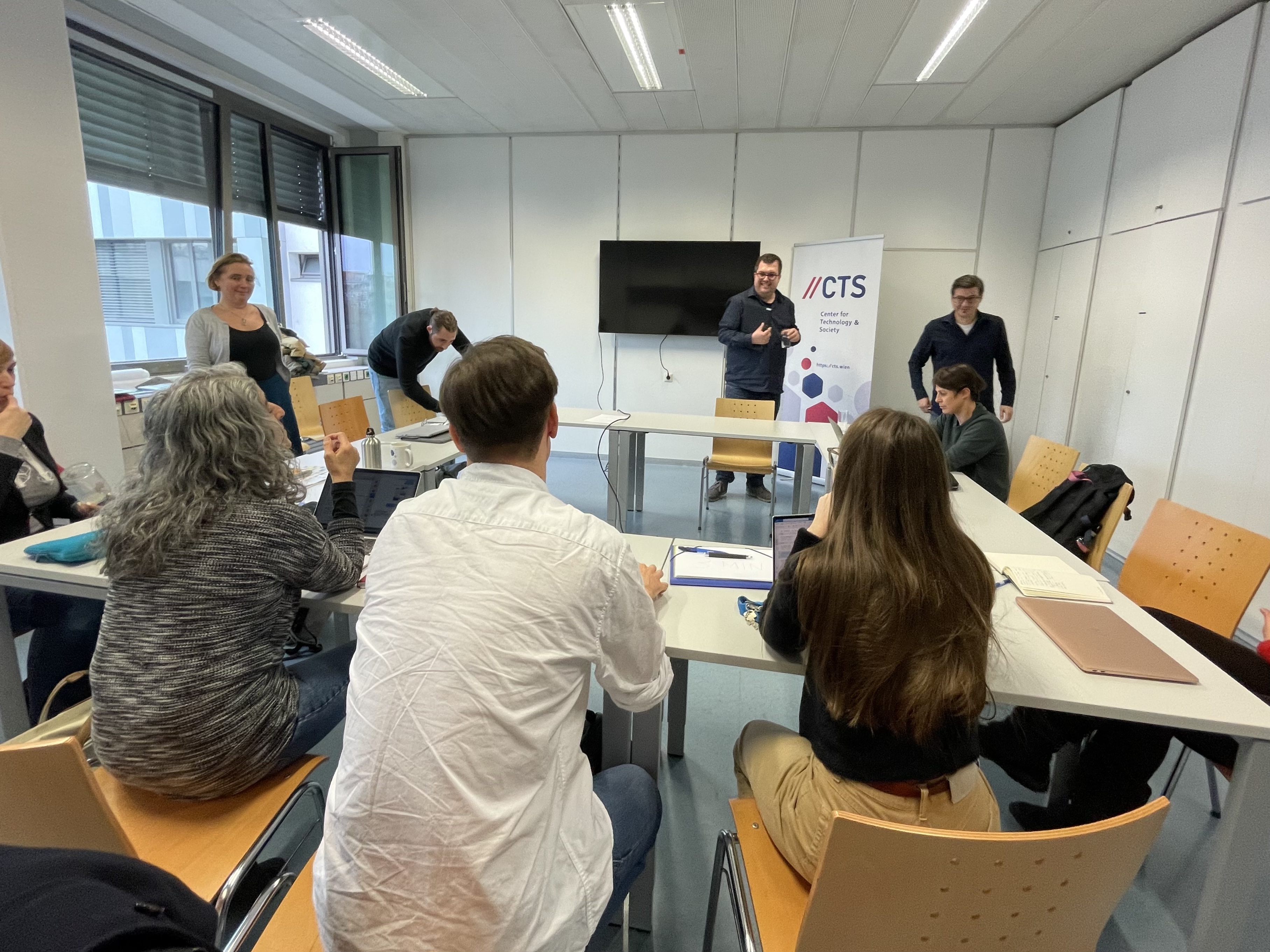Exploring the Frontiers of Responsible Computing was the central theme of the CTS//circle.responsibleComputing in the academic year 2024/2025. A review and outlook on new developments.
The Brown Bag Series of CTS//circle.responsibleComputing focused this year on interdisciplinary discussions about the ethical and societal dimensions of technology. Over two semesters, we engaged with the challenges and opportunities of Responsible Computing, covering everything from theoretical foundations to practical applications and emerging trends.
With a total of seven inspiring talks, the series provided a valuable platform for exchange between researchers, practitioners, and students, highlighting topics such as co-creation, ethical design, digital education, and access to urban spaces. Below, we reflect on the key themes of the series and review contributions from the individual talks.

Reflections on the Series
A central theme that emerged throughout the talks was the importance of embedding ethical considerations into the development and application of technology. The series began in April with a talk by Dr. Kevin Marc Blasiak, who laid the foundation for the discussions by exploring the fundamentals of Responsible Computing. He highlighted the significance of ethical principles in technology development, their practical implementation, and provided attendees with a solid introduction to the topic.
Another recurring theme was the importance of collaboration and inclusion in technology-driven processes. In her talk in May, Prof. Hilda Tellioğlu emphasized the role of co-creation and citizen participation in urban planning. She demonstrated how participatory methods from disciplines such as Computer Supported Cooperative Work (CSCW) and Participatory Design (PD) contribute to creating more inclusive and effective urban solutions. Her presentation showcased how technology can serve as a tool to promote engagement and consensus-building.
The series also addressed the practical aspects of responsible research, as demonstrated in June by Ana Vesic and Ambika Shahu. Their seminar on designing and conducting user studies introduced the concept of Responsible Research and Innovation and provided a detailed overview of best practices in planning user studies. This was complemented by a case study on learning new motor skills, offering practical insights and valuable guidance for researchers.
In the fall semester, the focus of the series shifted to topics such as trust, well-being, and digital inclusion. In October, Prof. Paweł W. Woźniak explored how technology can build trust through user-centered design. He introduced tools such as the Perceived Creepiness of Technology Scale (PCTS) and examined how user goals evolve over time when using fitness trackers. His insights underscored the importance of designing empathetic and adaptive technology.
In November, Theresa Schütz brought an artistic and ecological perspective to the discussion. She demonstrated how analog and digital tools can empower young people to rethink their surroundings in response to ecological crises. Her focus on media ecology highlighted that Responsible Computing must also address cultural and ecological challenges, fostering future skills through creative, interdisciplinary approaches.
The series concluded with discussions on youth inclusion and educational innovations. In December, Alvie Augustin explored the intersections of social inequality and access to urban public spaces, emphasizing the importance of intersectional approaches in algorithmic systems. Finally, in January, René Röpke examined how educational games can foster digital literacy. His examples illustrated how playful approaches can make complex topics like IT security more accessible and inspire technological education.
Key Themes in Responsible Computing
Several key themes emerged from this year’s seven talks:
- Ethical Foundations: Ethics was a connecting thread throughout all discussions, from Blasiak’s introduction to Responsible Computing to Vesic and Shahu’s user study practices.
- Inclusion and Collaboration: Tellioğlu and Augustin highlighted the importance of designing systems that serve and include marginalized communities.
- Practical Implementation: Tools like Woźniak’s PCTS and the case studies by Vesic and Shahu provided actionable approaches to implementing Responsible Computing in research.
- Creative and Relational Approaches: Schütz and Röpke demonstrated how artistic and playful methods can engage users while addressing real-world challenges.
These themes reflect the dynamic and interdisciplinary nature of Responsible Computing, which connects technology, ethics, and society.
Evolution of the Series
Building on this year’s momentum, we are evolving our circle’s Brown Bag Series into a broader initiative that incorporates various content formats. While we will continue to host occasional Brown Bag discussions, this expansion allows us to engage with different audiences and respond more dynamically to societal and technological developments.
Planned additions include:
- Essays & Commentaries – In-depth analyses and timely reflections on key topics in Responsible Computing.
- Interviews – Conversations with experts and practitioners offering diverse perspectives on current issues.
- Podcasts – Accessible discussions on the societal and technological challenges of our time.
By expanding our content formats, this initiative fosters deeper dialogue, facilitates access to complex topics, and allows us to respond more swiftly to emerging issues at the intersection of technology and society.